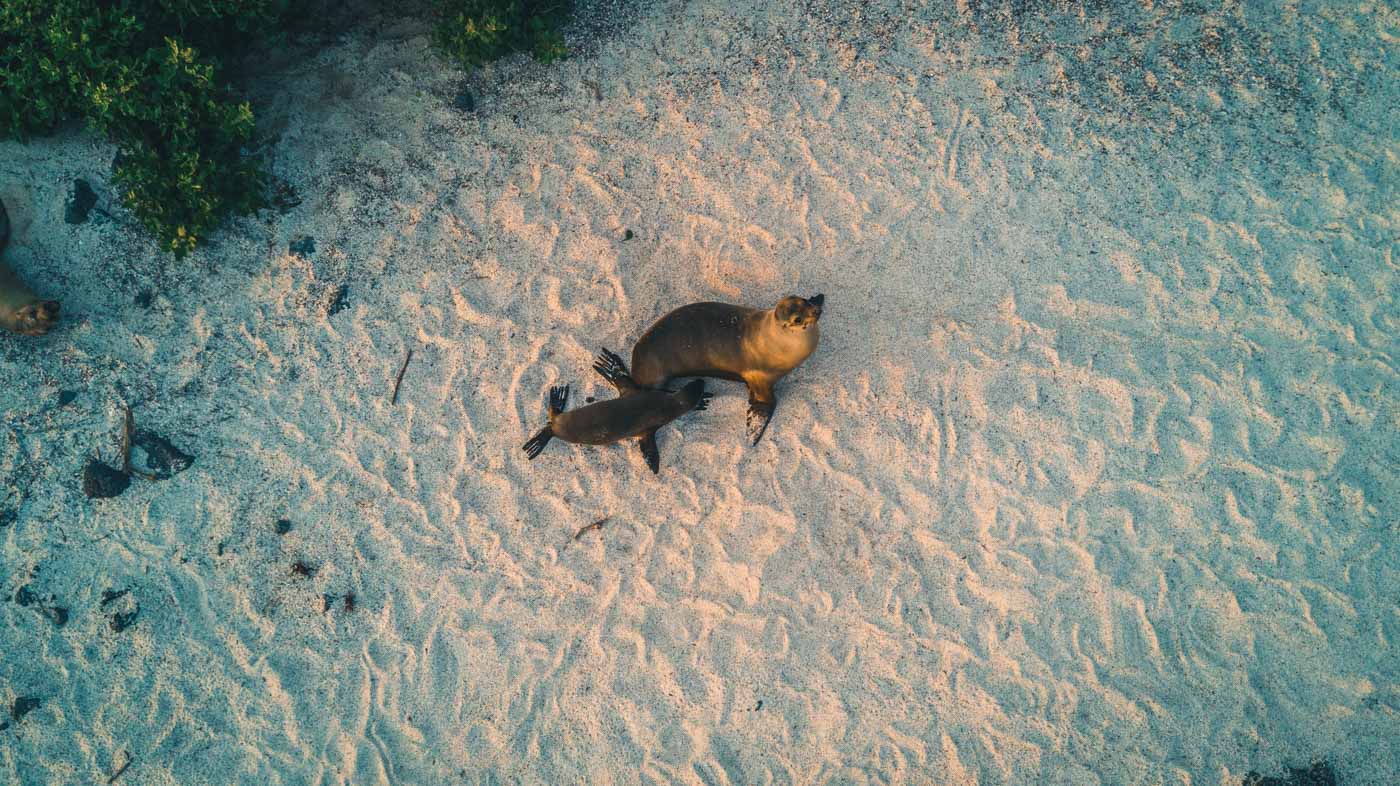The Galapagos Islands, off the coast of Ecuador, are one of the most unique places to visit in South America. The stunning islands are often considered a year round destination, with ideal weather and conditions for various activities. However, if you’re planning a trip to Ecuador, then you’ll likely want to know when is the best time of year to visit Galapagos.
*This post may contain affiliate links, as a result, we may receive a small commission (at no extra cost to you) on any bookings/purchases you make through the links in this post. As an Amazon Associate, we earn from qualifying purchases. Read our full disclosure
The climate in the Galapagos Islands can be broken down into rainy season and dry season. However, you’ll find various advantages of traveling at any time to the islands, depending on what you want to see and do when you get there.
After spending time in the Galapagos National Park and Marine Reserve ourselves, we’re going to break down what kind of weather you can expect while visiting the Galapagos Islands in every month of the year.
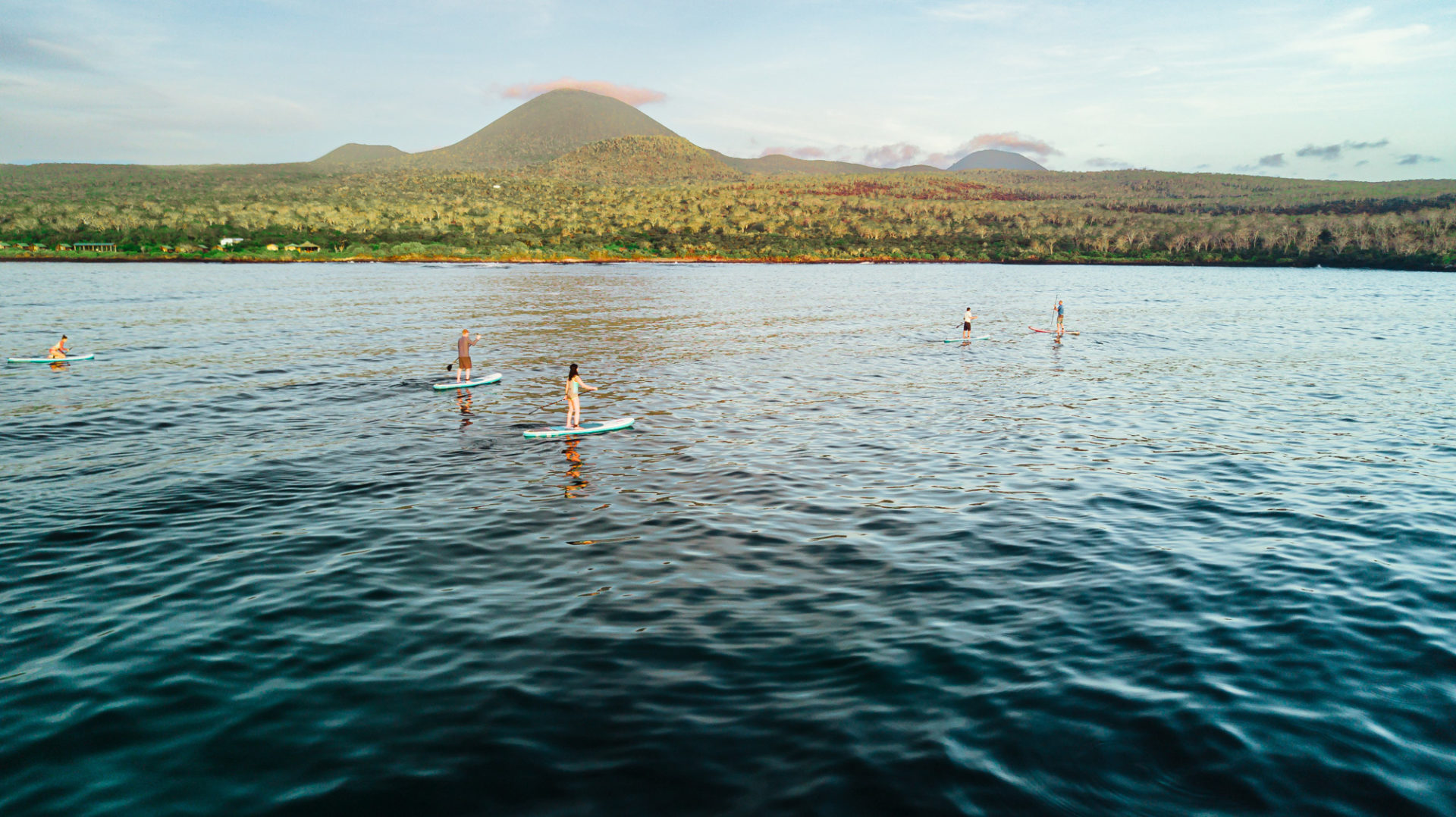
Traveling Soon? Here is a list of our favourite travel providers and accessories to help get you ready for your upcoming trip!
What is the Most Popular Time of the Year to Visit the Galapagos?
The Galapagos Islands sit right on the equator, making the weather variations throughout the year quite minimal. This means you can visit the islands all year round and still enjoy the best of what they have to offer.
However, if you’re trying to plan a trip in Ecuador and would like to visit Galapagos Islands, then you might want to know when the peak and low seasons are for tourists. This can impact how far in advance you might need to book and the prices of tours and accommodation.
Peak Seasons
The Galapagos seasons are quite confusing. There’s not just one peak season, but a couple of different times throughout the year that attract a crowd. Many people visit the Galapagos Islands over the New Year’s holiday season from mid-December to January. This is considered the high season in terms of prices, but also coincides with the beginning of the wet season.
The second high season period is from June until mid-September, which is the first part of the dry season. This is a popular time for families to travel and it can be difficult to secure accommodation. It is also considered the best time to go to Galapagos to watch the marine life which becomes more active with the cooler ocean temperatures.
Shoulder Season
The shoulder season in the Galapagos coincides with the months either side of the peak seasons: December, February, May and September into early October are all considered shoulder seasons. However, these months can be the best time of year to travel to Galapagos Islands because of the lower visitor numbers. Sounder season is our favourite time to visit the Galapagos, as it offers good wildlife interactions and, mostly, pleasant weather.
Low Season
October, November and late February until early May are considered the low season. These are the months when fewer tourists are coming from the mainland. However, this doesn’t always mean it’s a bad time for visiting Galapagos Islands. February to May is often warmer, but may also come with some rain. The average temperature is quite hot and it’s the perfect time to go swimming and diving. On the other hand, October and November are at the end of the dry season, when air temperatures are beginning to warm up again.
Plus, you’ll get to enjoy the islands at their quietest, with some very cheap deals to be had.
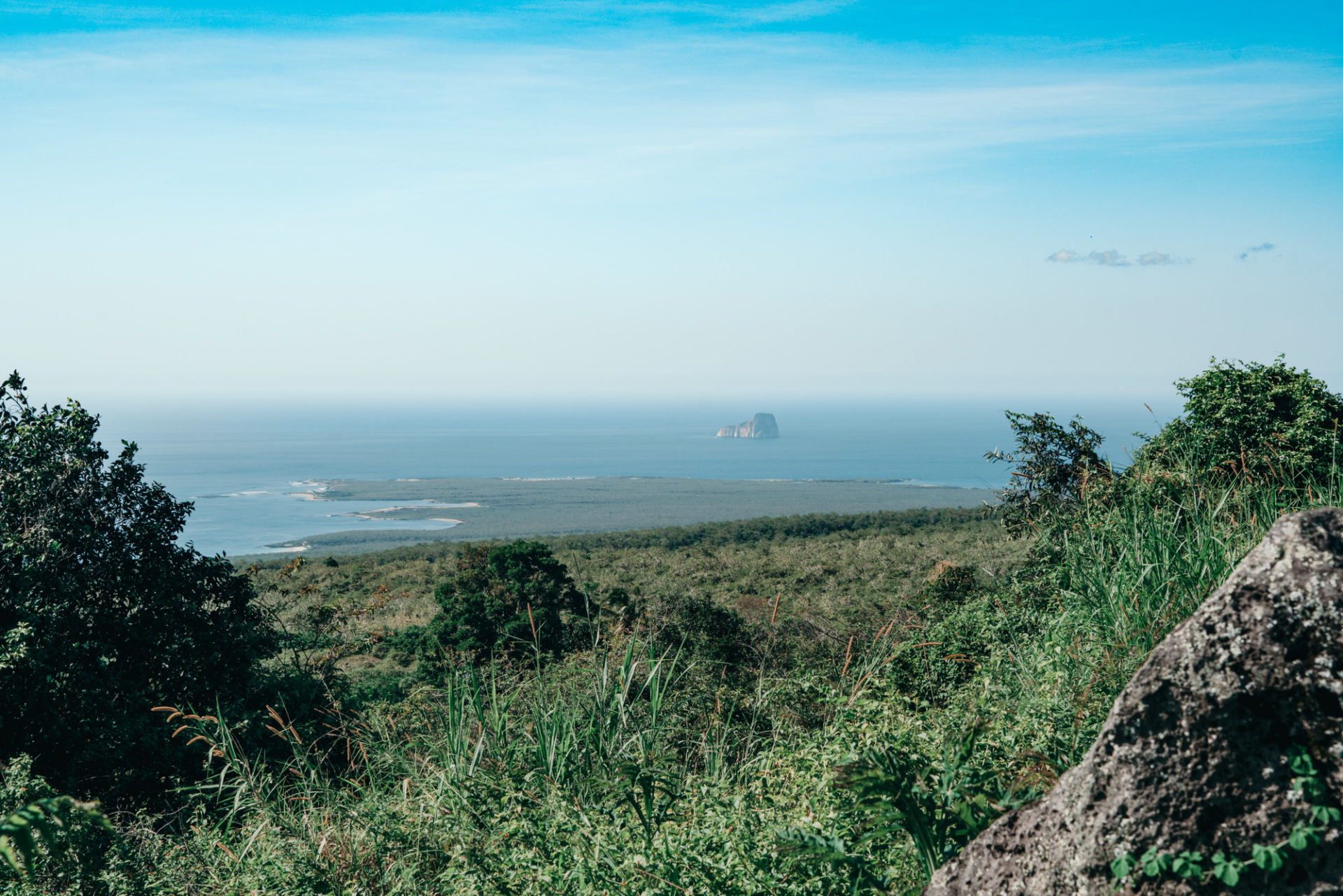
What are the Warmest Months in the Galapagos Islands?
If you’re looking for warmer weather, then the best time to travel to the Galapagos Islands is from December through to May. However, these hot months in the Galapagos Islands also coincide with the rainy season. The temperatures range between 24-31 ºC (75-87 ºF), but you can also expect a lot more tropical rain showers.
It drizzles almost daily during these months, but usually just for a short time. Mostly, you’ll experience warmer temperatures both in the air and in the sea. You can also admire the lush green vegetation and incredible land animals and birds who come out to nest and mate during these months.
When it comes to water temperatures, December to May is the ideal season to go swimming and snorkeling. Even in the much cooler western and central islands, it’s still great to be in the water with calmer seas. This also makes it a perfect time to do a Galapagos cruise, with less chance of getting seasick.
When are the Cooler Months in the Galapagos Islands?
The cool season, which is also the dry season, runs from June until November. It’s often referred to locally as the garúa season. You can expect average temperatures ranging between 21-26 ºC (69-78 ºF), with clearer skies and a more comfortable climate in Galapagos Islands for hiking and exploring.
This is when the Humboldt Current makes its way up to the Galápagos from the southern tip of South America. The current brings cooler temperatures, and with it, nutrient-rich waters that attract marine life and sea birds. If you’re keen to brave the colder water temperatures, this is one of the best times to go scuba diving in the Galapagos.
If you are planning to join a Galapagos cruise, it is important to keep in mind that the cooler months bring rougher seas and thus rougher sailings. It’s a particularly beautiful time to get out and see some marine life if you have a strong stomach.
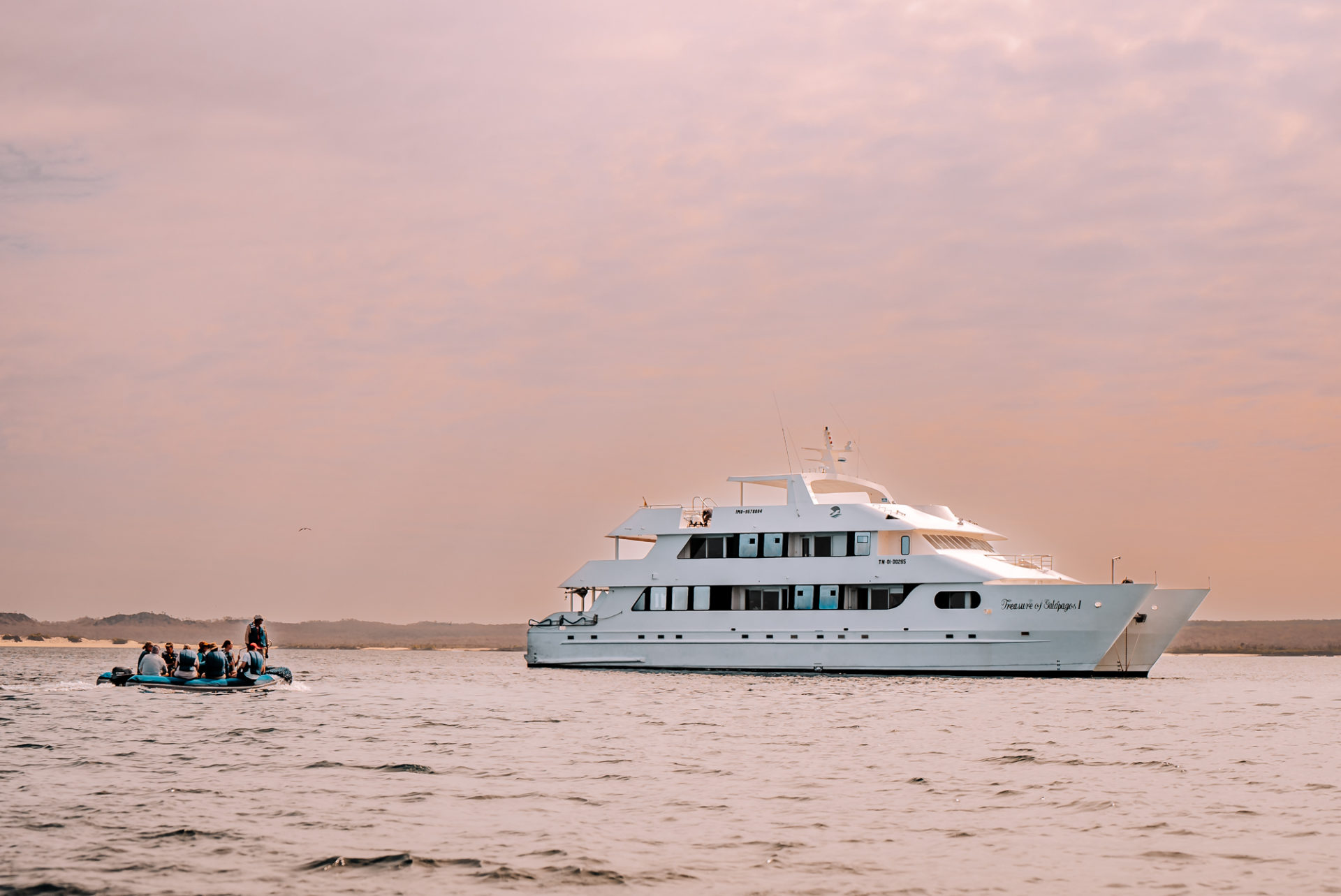
When is the Best Time to Visit the Galapagos Islands for wildlife?
No matter what time of year you travel to Galapagos, you’ll be able to admire its incredibly diverse wildlife. But keep in mind that wildlife sightings range throughout the year, so some months are better for certain animal sightings than others.
The warm season from December to May is a great time to spot land animals and watch mating rituals on the coastline. It’s the main breeding season for land birds. Marine iguanas and land iguanas also start their mating season at the end of January, and can be seen in abundance on Española Island and Isabela Island.
The warmer months are also the nesting season for green sea turtles and the mating season for giant tortoises and sea lions. You may see baby sea lions and turtles towards the later part of the season.
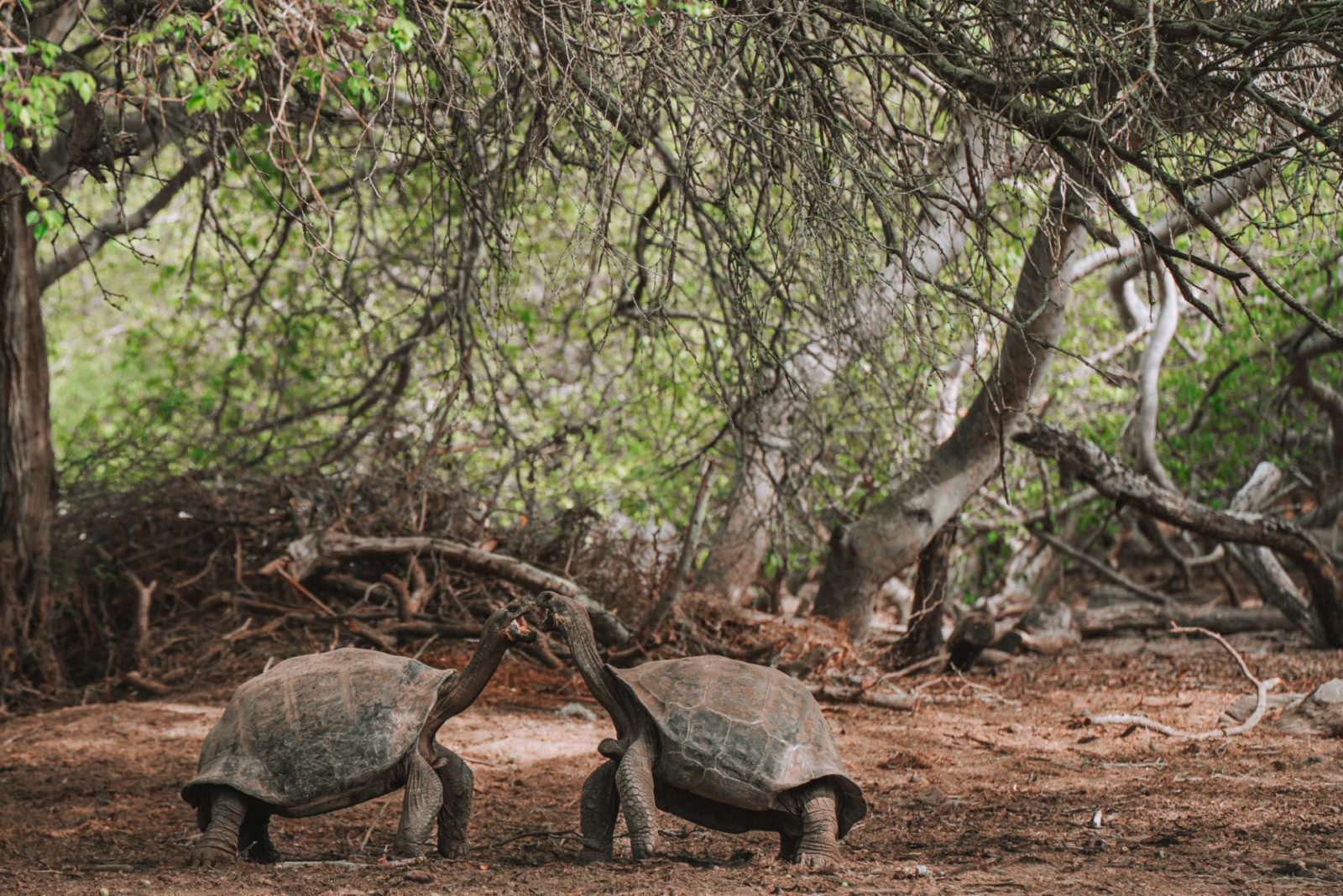
The cool season from June to November is more about sea birds and underwater life. The colder sea temperatures bring a greater abundance of fish and plankton, which in turn attracts a host of birds, including the waved albatross and Galapagos penguins. The cool season is also the main breeding season for flightless cormorants.
This is also the best time to go to the Galapagos for whale watching. There have been over 20 different species of whales spotted off the coast of the Galapagos, including blue whales, sperm whales, humpback whales, and pilot whales. The western side of the archipelago is the best place to spot whales, especially near Isabela Island and Fernandina Island.
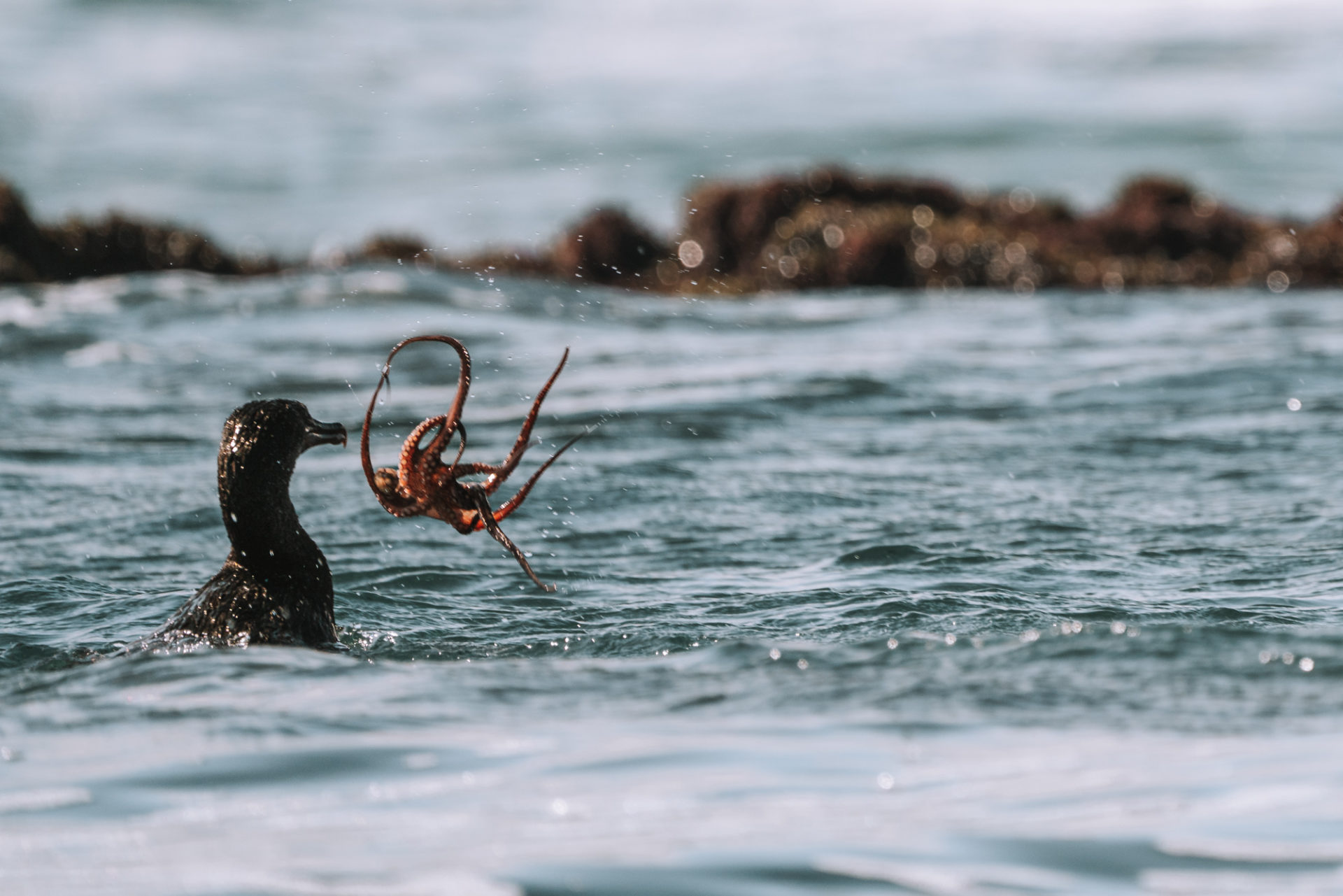
Weather in the Galapagos: Month by Month Breakdown
If you’re trying to work out when to go to the Galapagos Islands, the below should help. We’re going to break down the weather month by month so you can pick when the best time to visit the Galapagos Islands is for you.
Weather in the Galapagos in January
January is the busiest time to visit the Galapagos. This is peak season, with many people traveling to the Galapagos Islands in search of sun and sand. If you are planning to travel to the Galapagos in January, be sure to book your Galapagos tours and Galapagos cruise and accommodation well in advance.
January marks the beginning of the warm season. Expect periodic tropical rain showers and warm sun. Average temperatures are between 21-29° C (70-84°F), with water temperature in the 20s. It’s a popular time to go snorkeling or diving.
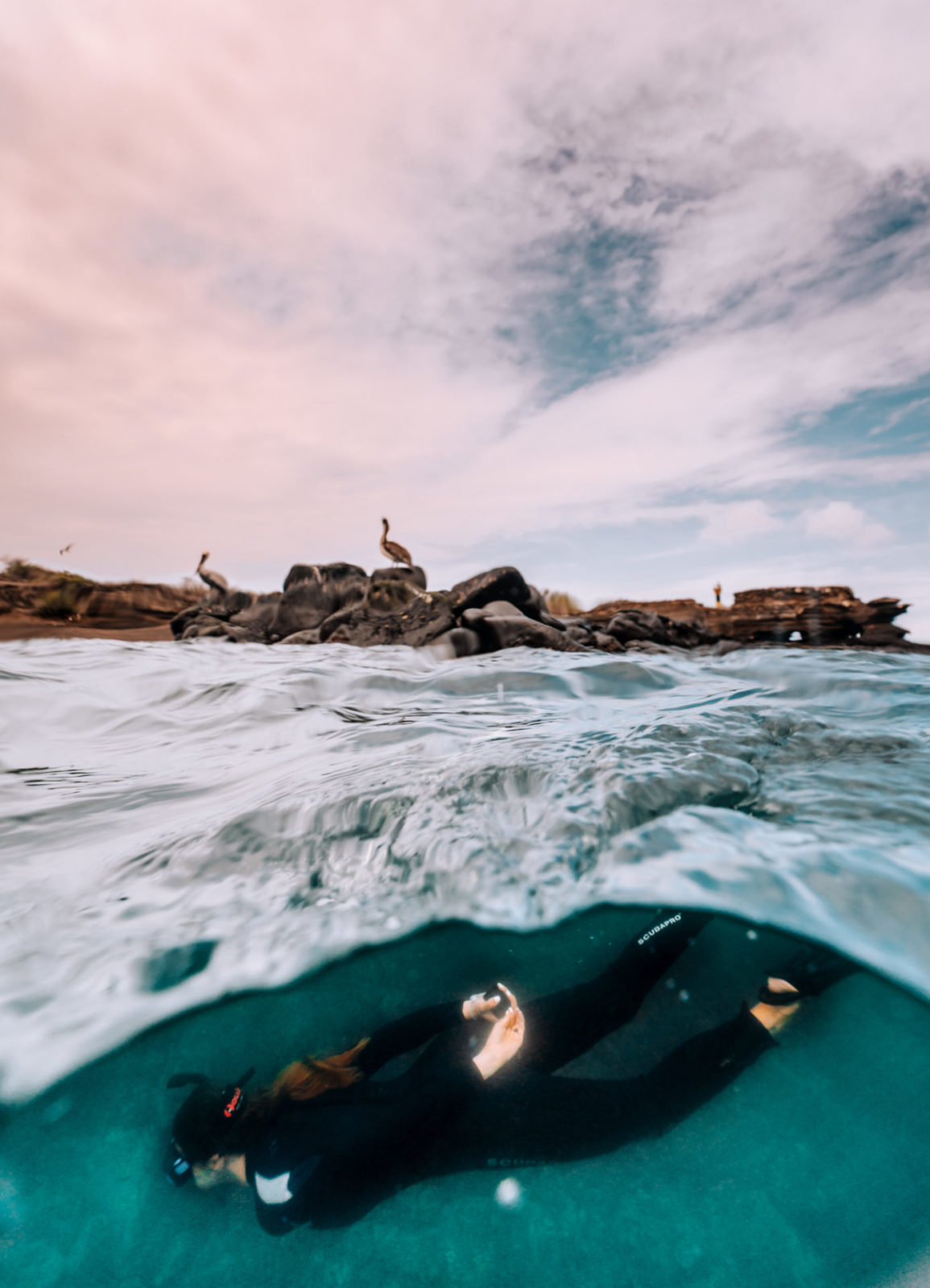
Wildlife Sightings in January
The first rains of the year signal to land birds and marine and land iguanas that it’s nesting and mating time. You can see marine iguanas in their bright colours, especially on Española Island. Land iguanas begin breeding on Isabela Island.
Green sea turtles begin to arrive onshore at this time to lay their eggs, so it’s a good time to view them as they come to the coast.
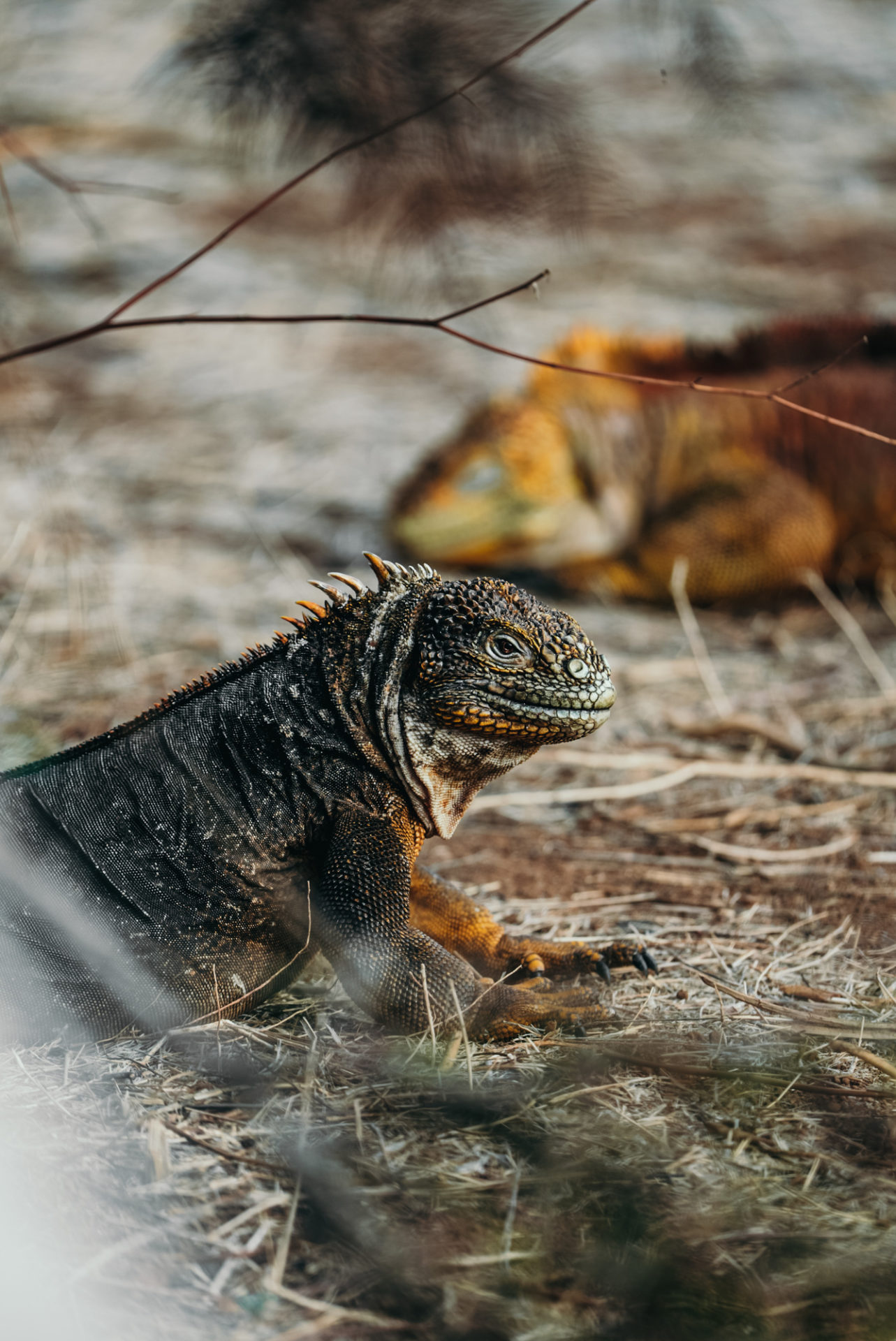
Weather in the Galapagos in February
Galapagos weather in February is very warm, with temperatures reaching well into the 30°C (80-90°F). This means that even with the increased rain, you’ll still enjoy plenty of sun if you visit the Galapagos Islands in February
The water is generally very calm at this time and the underwater visibility is at its clearest, making it perfect for kayaking and snorkeling.
Wildlife Sightings in February
Nesting and breeding activity continues into February. Some of the birds nesting during this time include the Nazca boobies and the Galapagos dove. Marine iguanas begin their nesting to Santa Cruz Island.
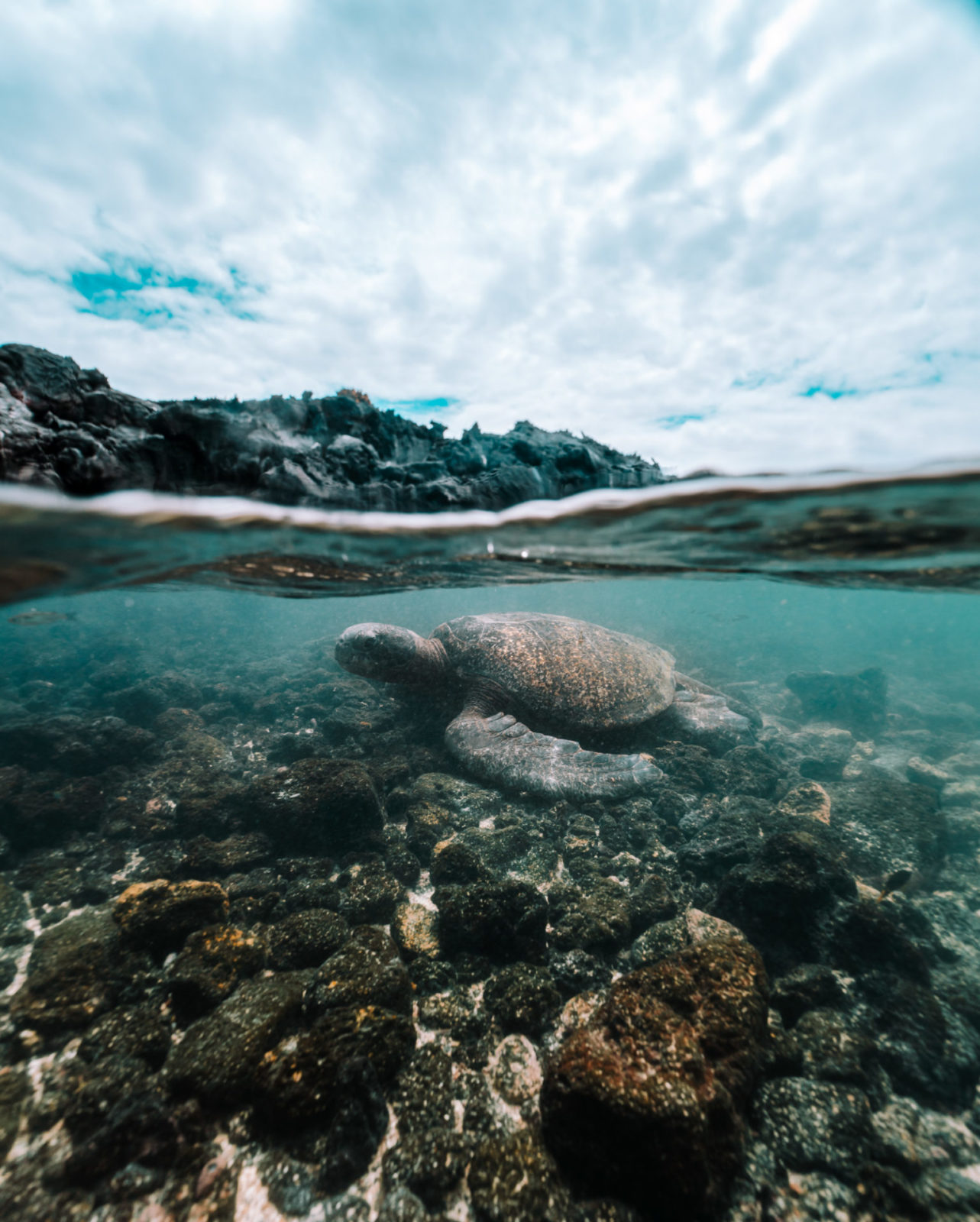
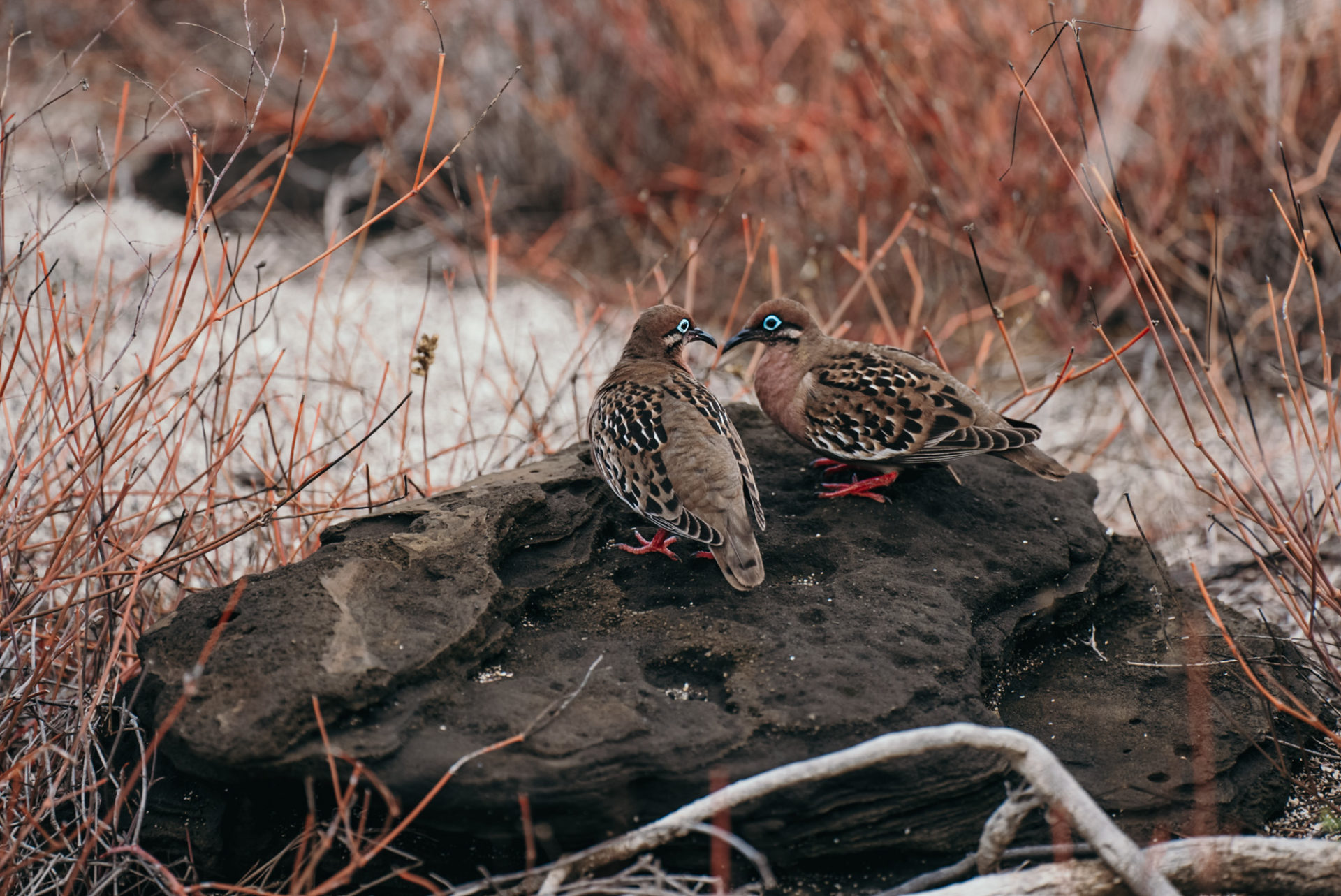
Weather in the Galapagos in March
March weather in the Galapagos Islands can be intense. It’s the peak of summer and wet season, with hot temperatures, frequent downpours and high humidity. However, it’s not all bad, as it’s a great time to enjoy the beaches.
The water is at its warmest, and you can go swimming even on the far western side of the archipelago. March is also considered to be the low season and a quiet time to visit the Galapagos Islands.
Wildlife Sightings in March
March is a nice time for birdwatching. Mid-March usually signals the arrival of the albatross on Española Island for the mating season. Frigate birds also begin their breeding season on San Cristobal Island and Genovesa Island. You can witness the male frigates inflating their red throats to attract females. Flamingos also start their mating season in March.

Weather in the Galapagos in April
The vegetation is extremely green and lush by April, with wildflowers beginning to bloom across the islands. The rains also start to ease during this month and by the end of April, temperatures begin to cool.
April is a beautiful time to visit and it’s still low season so you can snag some good deals. You’ll also likely have some nicer weather, as the seasons start to change.
Wildlife Sightings in April
April is the month to see the courtship ritual of the waved albatross on Española and blue-footed boobies on North Seymour Island, which is one of the incredible wildlife attractions of the Galapagos. This runs through April and May, making it the best time to visit the Galapagos Islands to see these unique birds.
April is also the start of the hatching season for many animals, including giant tortoises, green sea turtles and land iguanas.
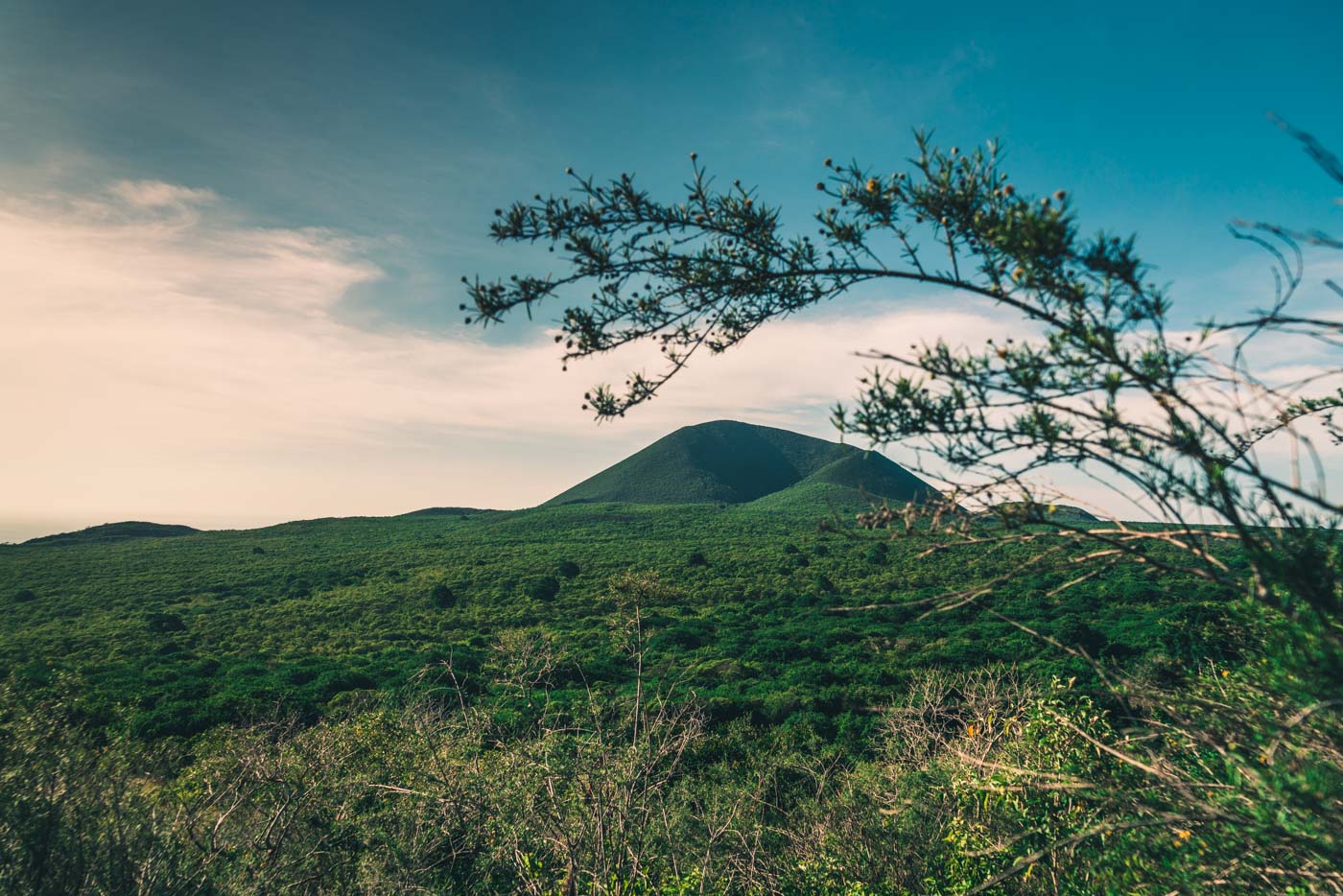
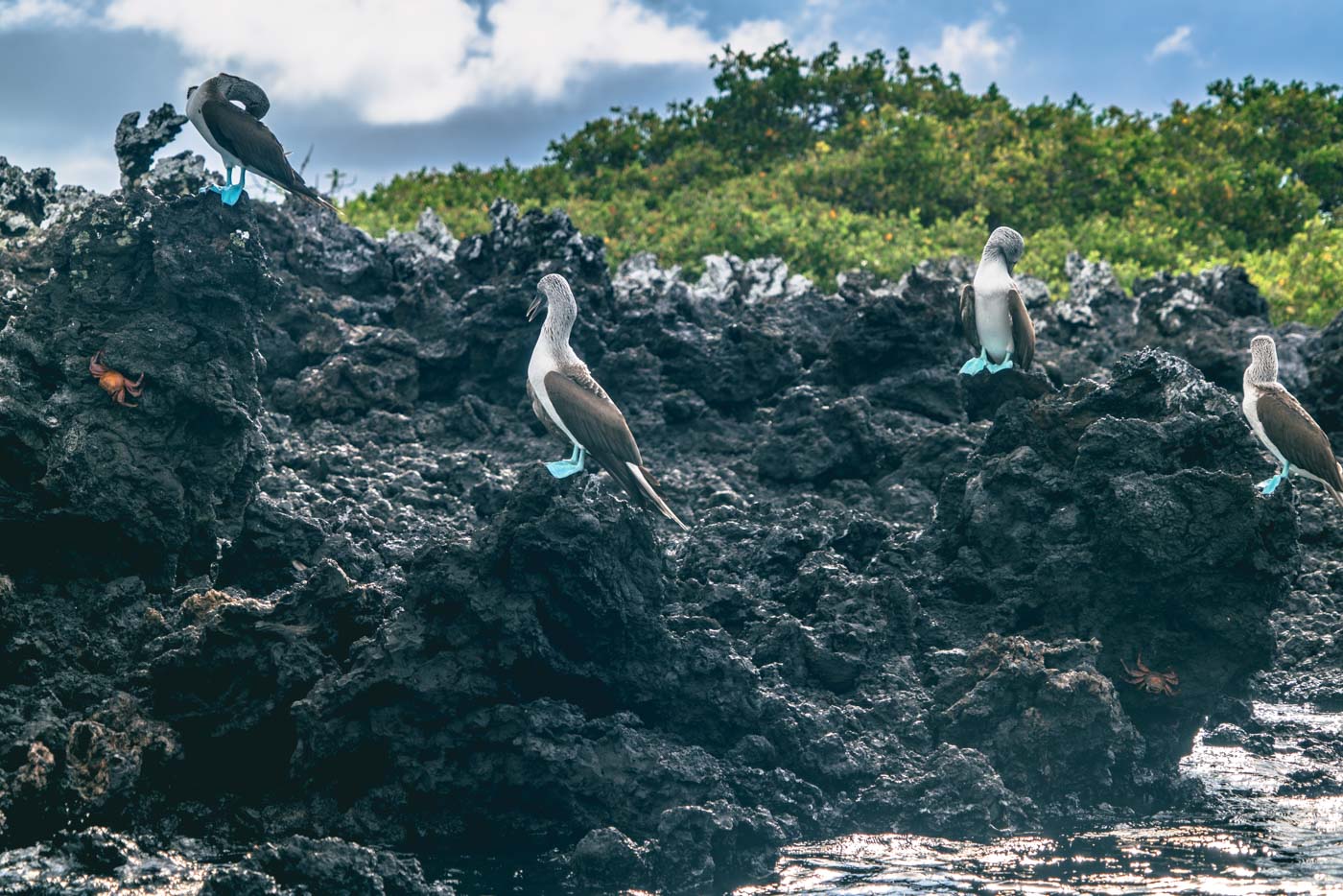
Weather in the Galapagos in May
May is one of the most underrated times to visit the Galapagos Islands. It’s the transition time between the wet and dry seasons, so you can experience the best of both. The weather is warm, but not too hot, with temperatures around 22-28°C (72-82°F). It’s also one of the best months for wildlife spotting.
It’s just before the next high season begins in June, so the islands are still very quiet. In fact, some people would argue May is actually the best month to visit Galapagos.
Wildlife Sightings in May
Waved albatrosses and frigate birds begin laying their eggs during May, while sea turtles and marine iguanas are hatching. This is usually the best time to see sea lion pups on the coastline as well.
It’s a great time to watch the mating rituals of blue-footed boobies on North Seymour Island. As the weather cools, the Galapagos penguins also start to become more active on Bartolome Island.
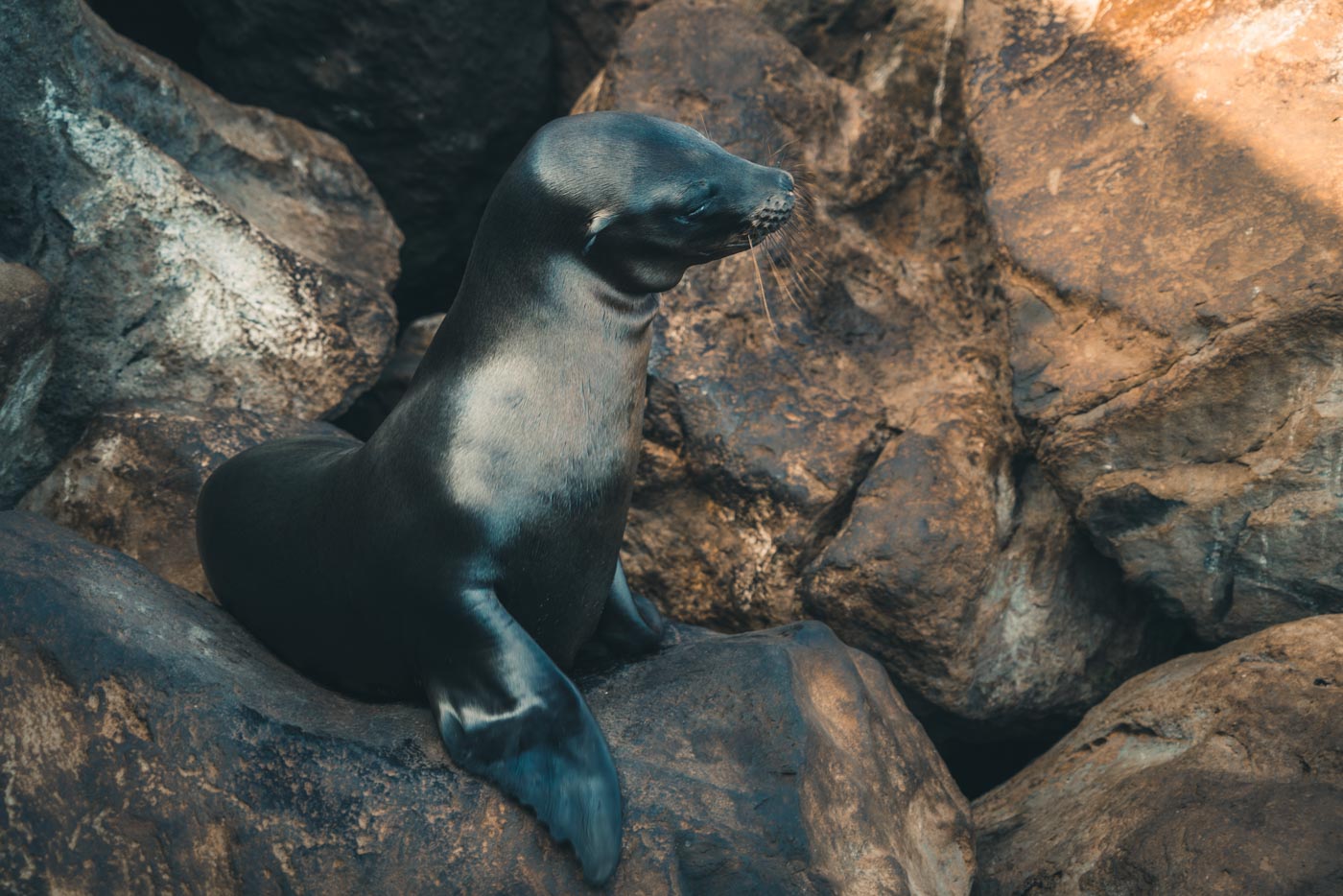
Weather in the Galapagos in June
The start of the dry season brings cooler temperatures to the Galapagos Islands. Expect misty mornings and warmer afternoons. With the arrival of the cooler currents, underwater visibility starts to fade and seas can become choppy.
Despite the change in weather on the Galapagos Islands, mid-June marks the start of the second popular season to visit, with many families choosing to travel to the Galapagos during the holidays.
Wildlife Sightings in June
Giant tortoises migrate to the lowlands on Santa Cruz Island to find nesting places after the mating season. This is also when many of the migratory birds and whales make their way up to the Galapagos from further south.
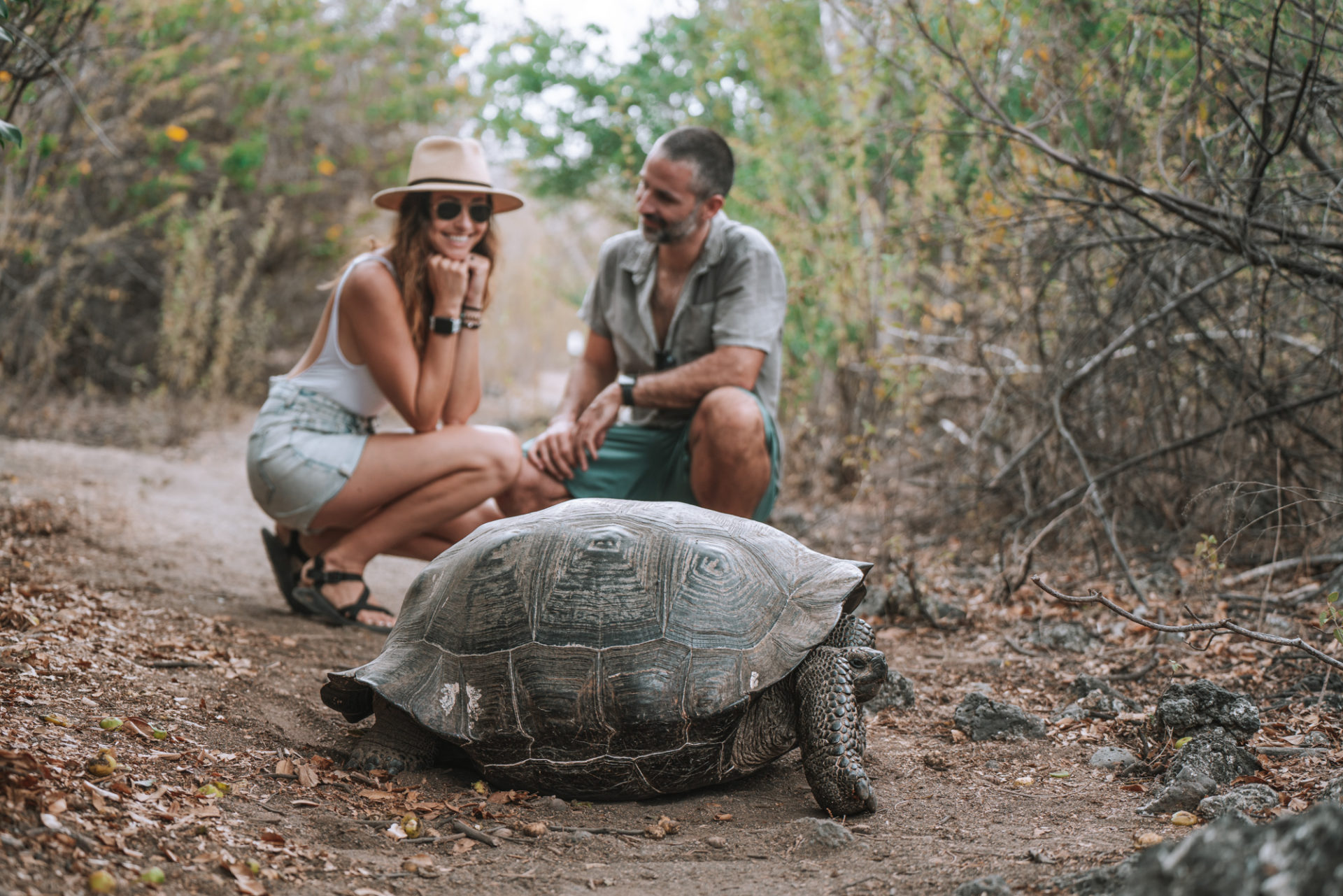
Weather in the Galapagos in July
The weather on Galapagos Islands in July continues to cool off. Day temperatures are still in the low 20s, so it’s pleasant for exploring the islands on foot. The underwater world is exploding with an abundance of fish and marine life, but the cooler water temperatures means that you’ll need a wetsuit.
July also coincides with summer holidays in the Northern hemisphere and thus is the peak holiday month for families traveling to the Galapagos.
Wildlife Sightings in July
July is a popular nesting time for flightless cormorants on Fernandina, the blue-footed boobies, and oystercatchers. Migratory birds are also quite common around the islands, making it a particularly good month for birdwatching.
The mating season for lava lizards, which continues until November, begins in July.
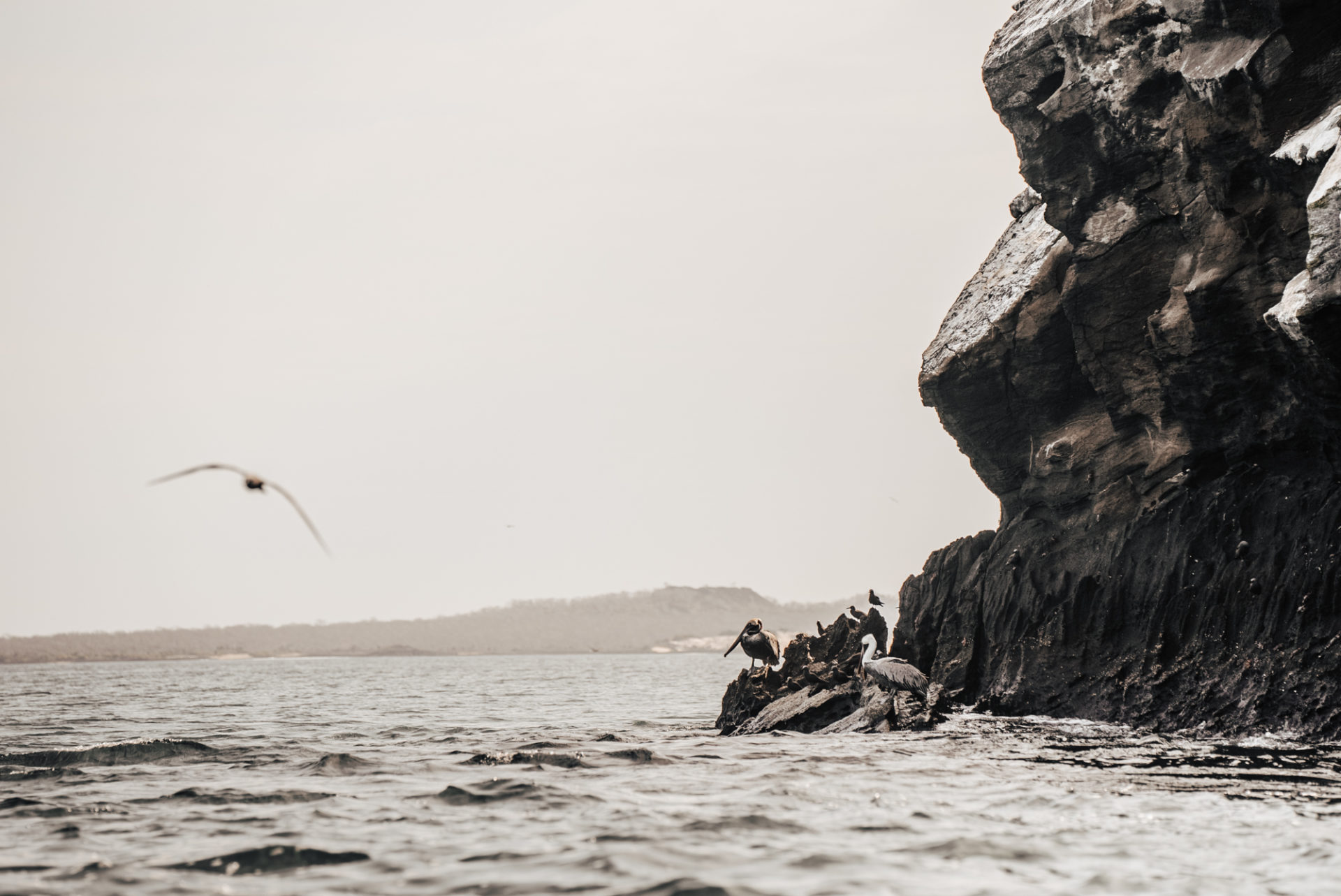
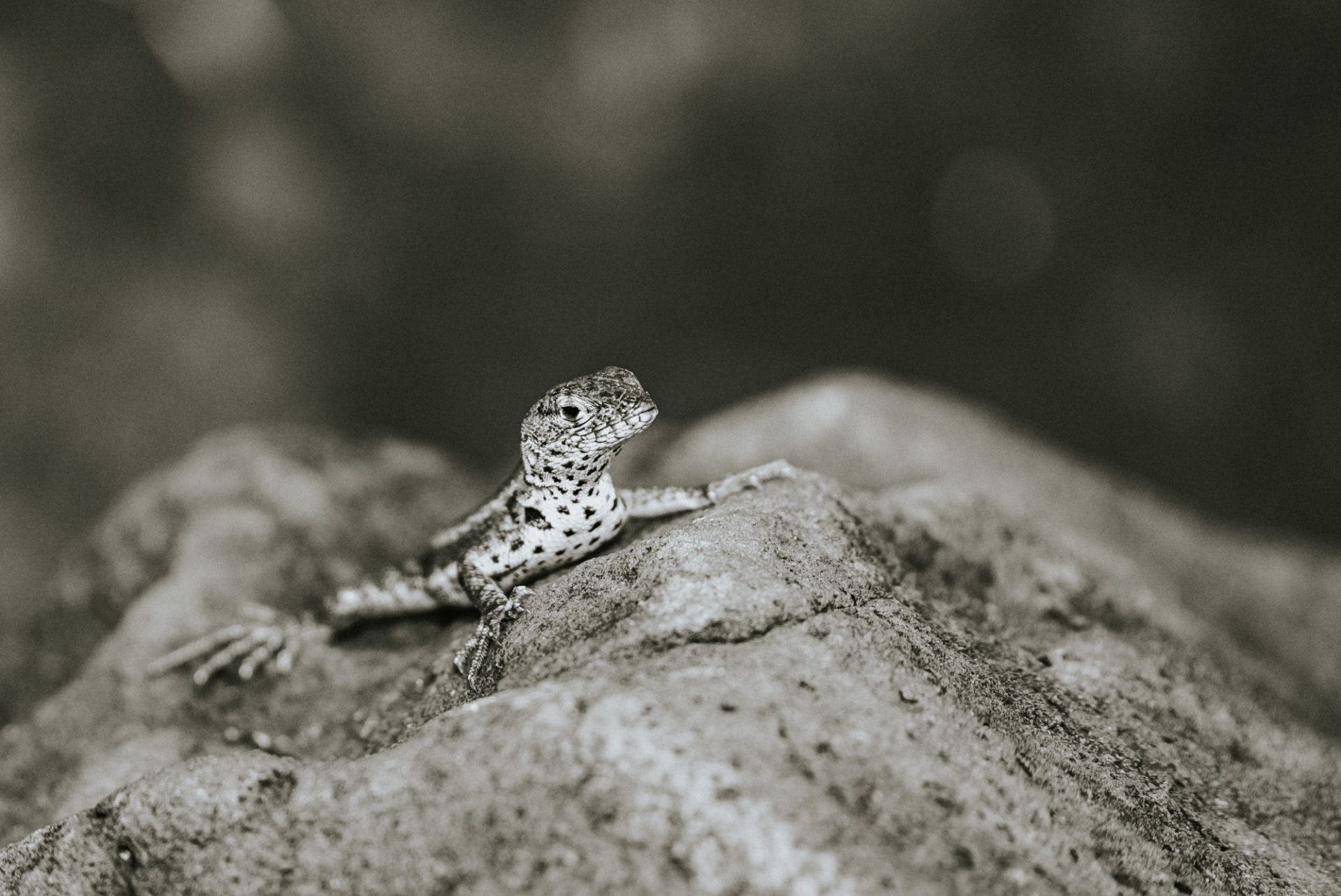
Weather in the Galapagos in August
The busy holiday season concludes in August, so the islands begin to slow down again towards the end of the month. It’s still a very cool and dry time to visit, with the water temperature dropping to below 19° C (66° F). Currents and winds tend to make the seas particularly choppy in August.
Wildlife Sightings in August
Galapagos hawks begin their courtship rituals on Santiago Island and Española. This is also the best time to visit the Galapagos to see sea lions and their pups, particularly on the western and central islands.
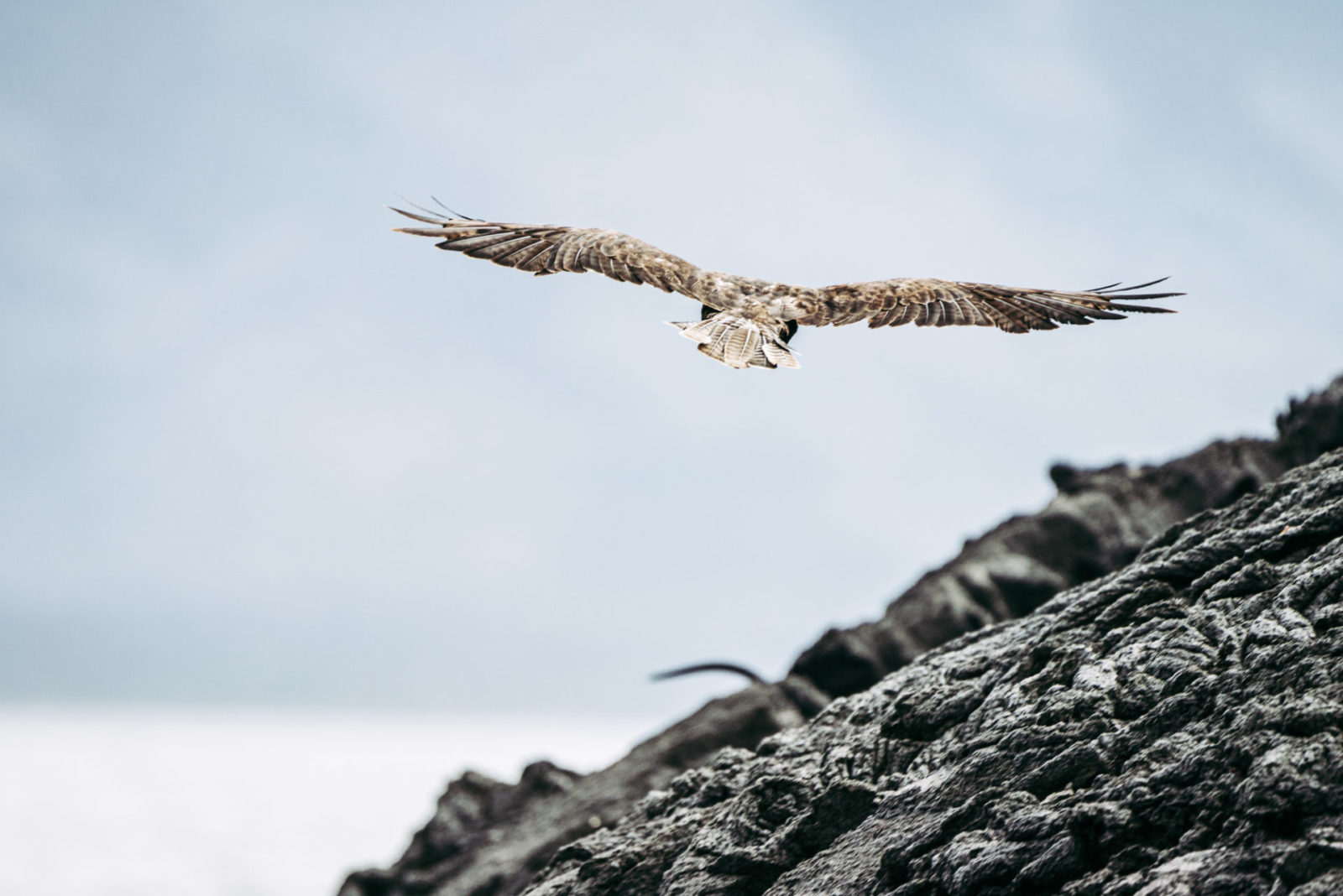
Weather in the Galapagos in September
September is the start of the low season in the Galapagos. Yet, the Galapagos Islands climate at this time sees little rain and cool weather.
It’s the best time to visit the Galapagos Islands for diving and snorkeling, as marine life is particularly active during September. Be prepared to brave have to brave the cold water!
Wildlife Sightings in September
A range of marine life is best seen in September, including whales, sea lions, dolphins, penguins and Galapagos fur seals.
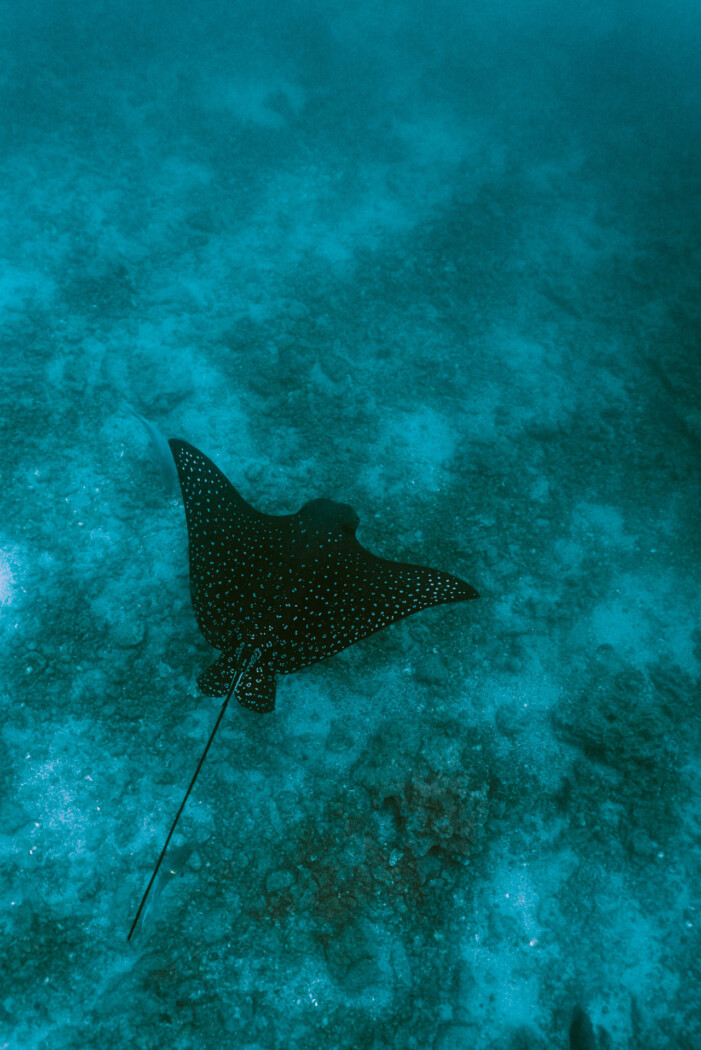
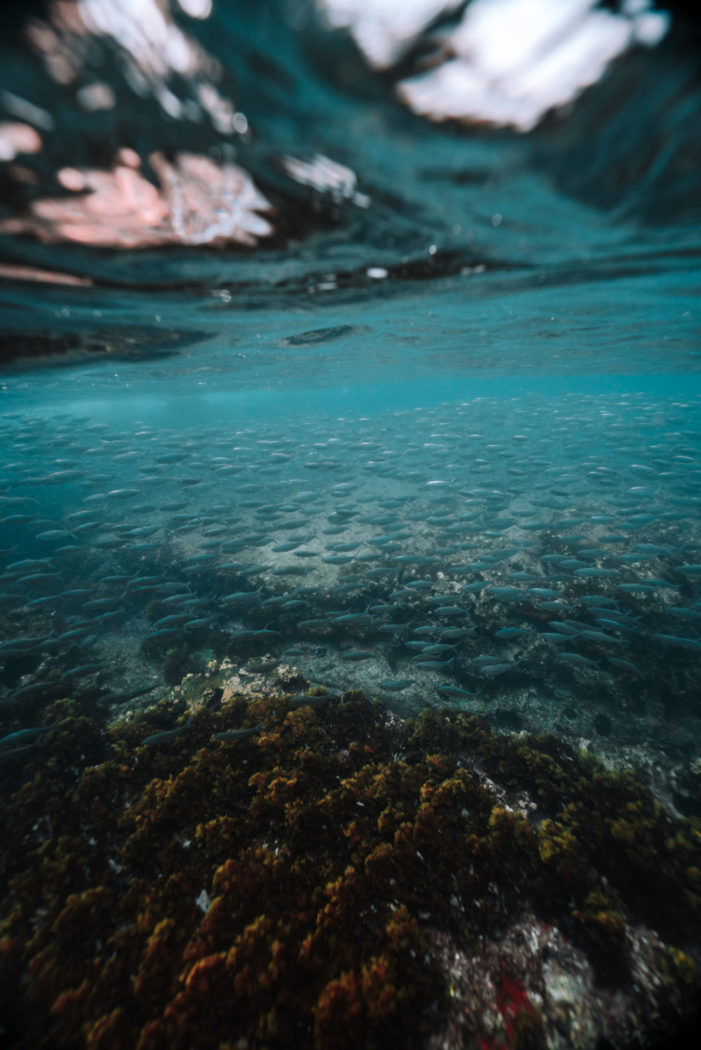
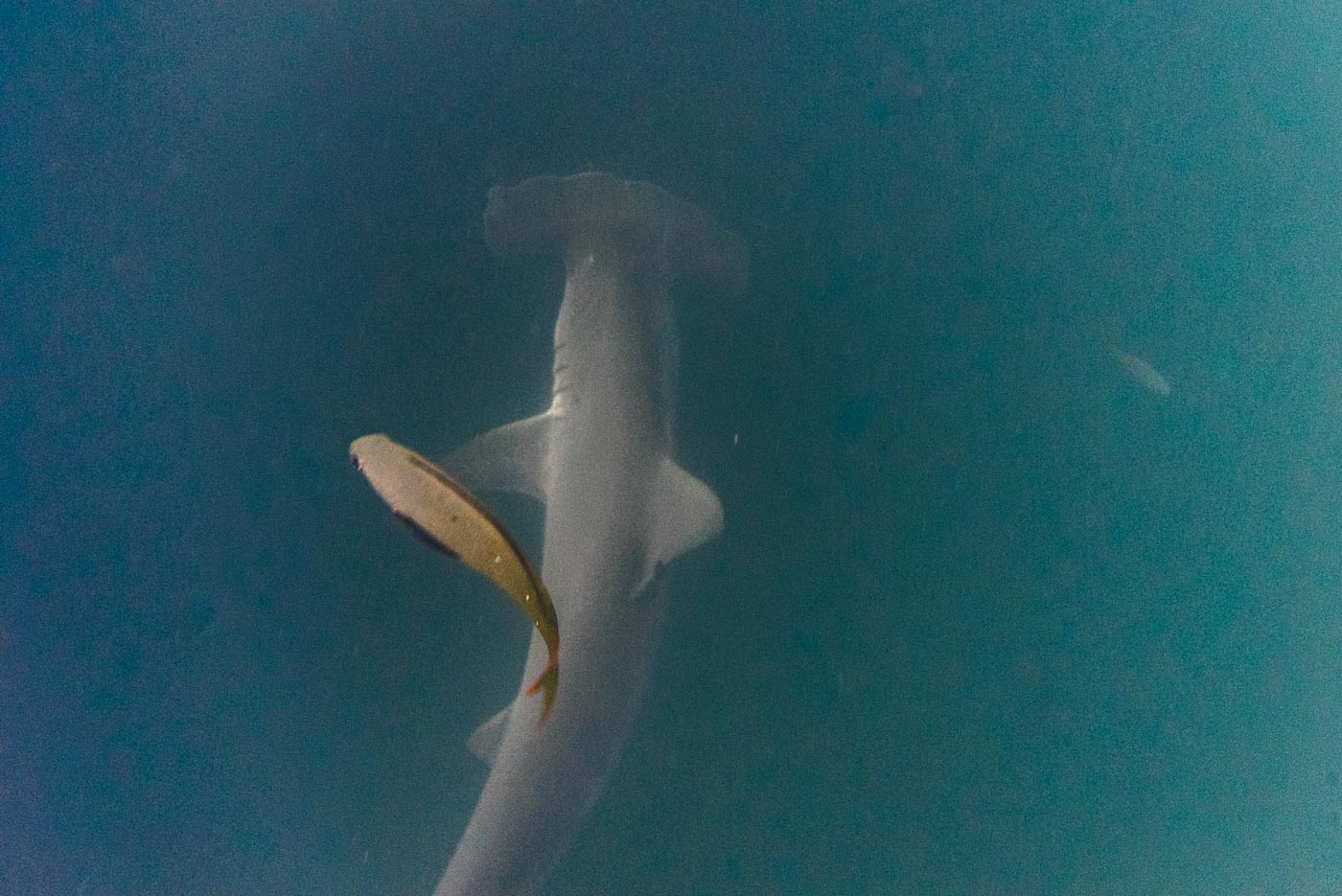
Weather in the Galapagos in October
The low season in the Galapagos is characterized by cool and dry conditions. Day temperatures are around 18-25° C (64-77 °F).
The cool currents are still dominating the ocean so the water is only ideal if you’re equiped with wet suits. However, October can be the best time to go to the Galapagos Islands, if you are traveling on a budget. Many hotels, tour and cruise operators offer discounts on their packages during this time of the year.
Wildlife Sightings in October
Thanks to cooler waters, marine animal sightings are still at their peak in October. Sea lions and fur seals are particularly active. You can also start to see blue footed booby chicks around Española and Isabela Islands.
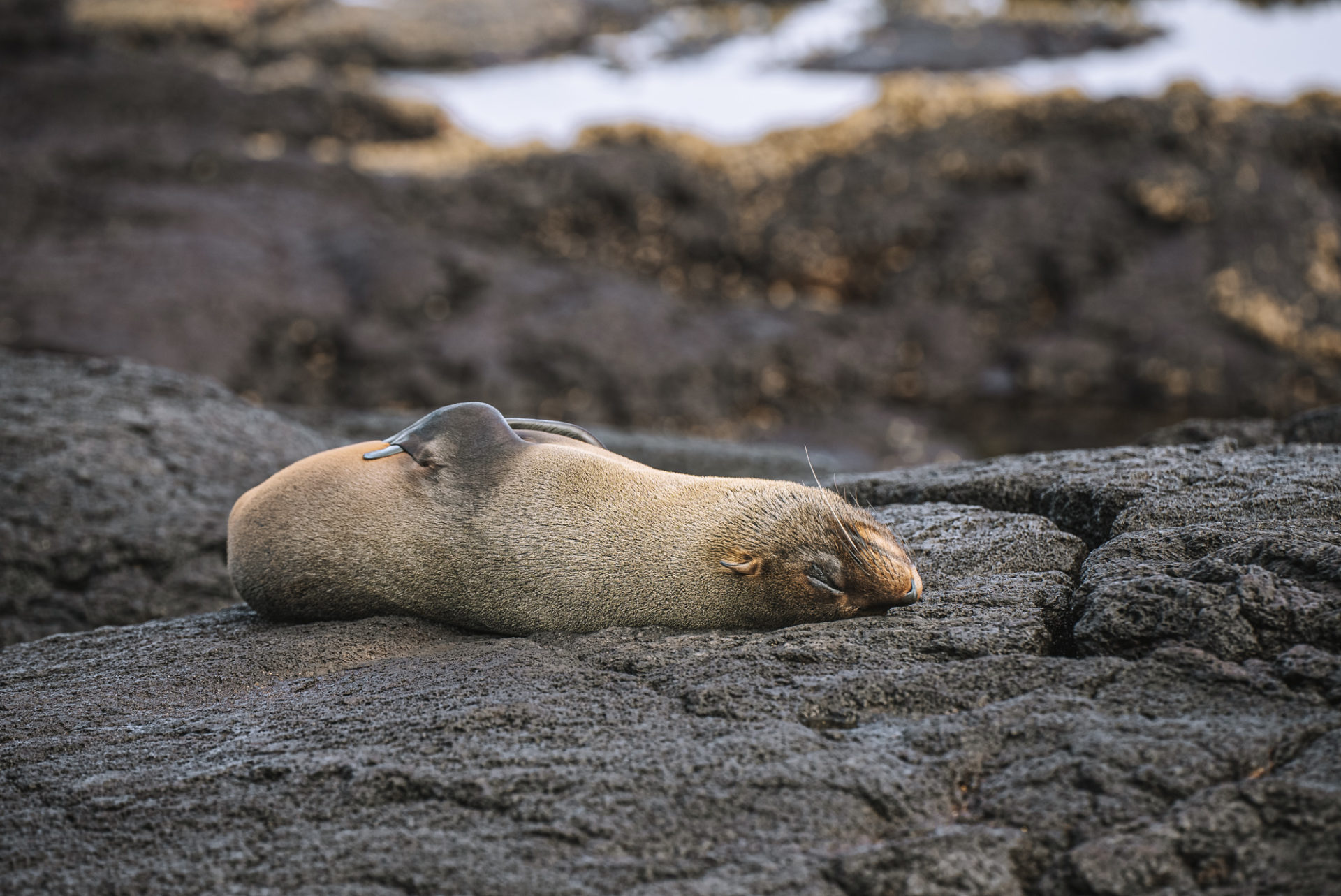
Weather in the Galapagos in November
Come Novemeber, Galapagos islands weather is starting to change. You can expect warmer air temperatures in the mid-20s. Water temperatures start to warm up and visibility begins to clear again so snorkeling and diving can be fun, especially with the playful marine life.
Wildlife Sightings in November
Sea lion pups are really active at this time, so it’s a great time to get into the water. Some birdlife is active too, with sightings of Nazca booby chicks, storm petrels nesting and brown noddy’s breeding.
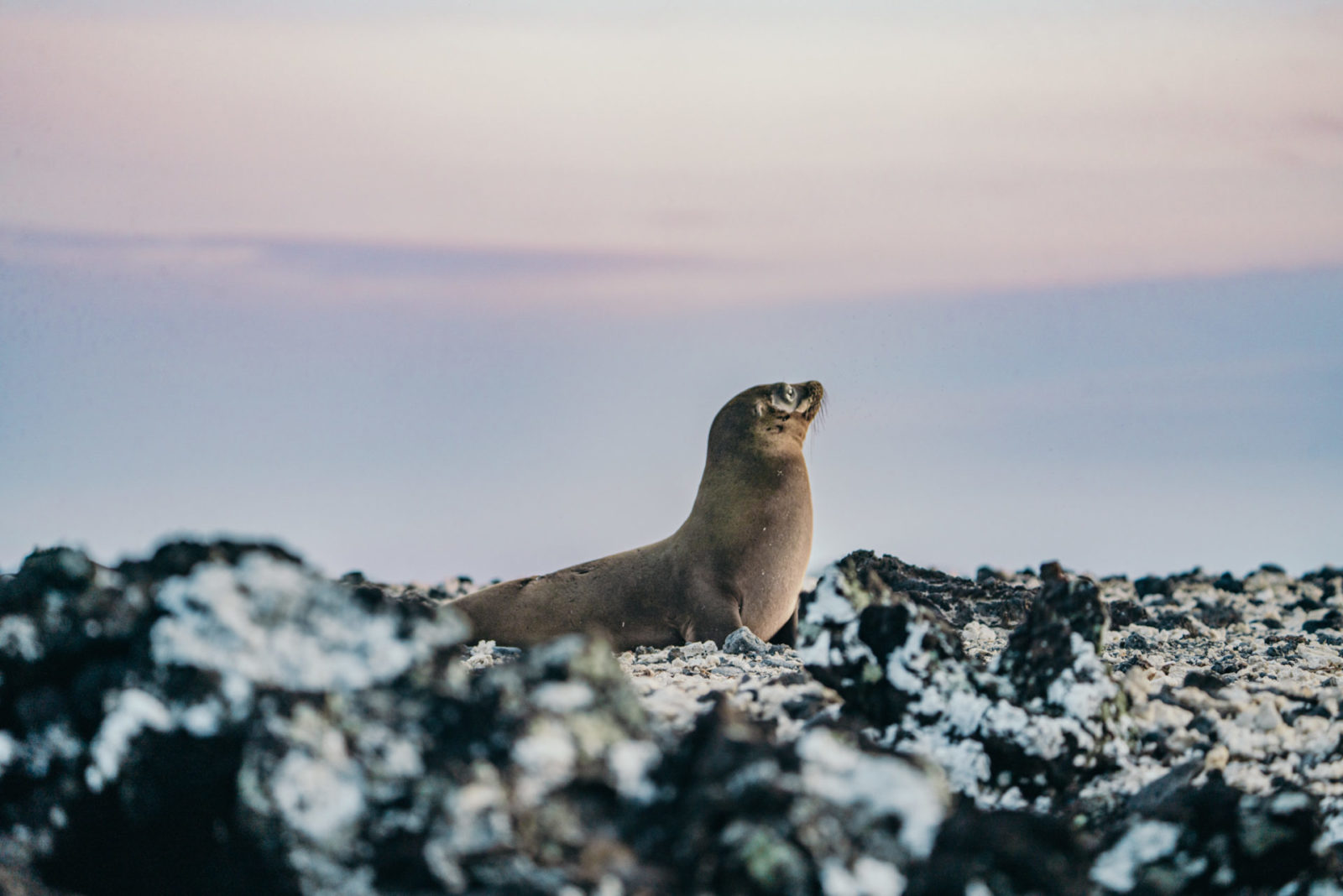
Weather in the Galapagos in December
The beginning of the Galapagos rainy season and warmer weather, late December marks the start of the peak season for the holidays. There’s still low rainfall though, so it’s a great time to take advantage of the warm climate of the Galapagos Islands.
Wildlife Sightings in December
Giant tortoise eggs begin to hatch and continue to do so well into April. The young waved albatrosses take off from the nest around December as the birds leave Española until later in the season.
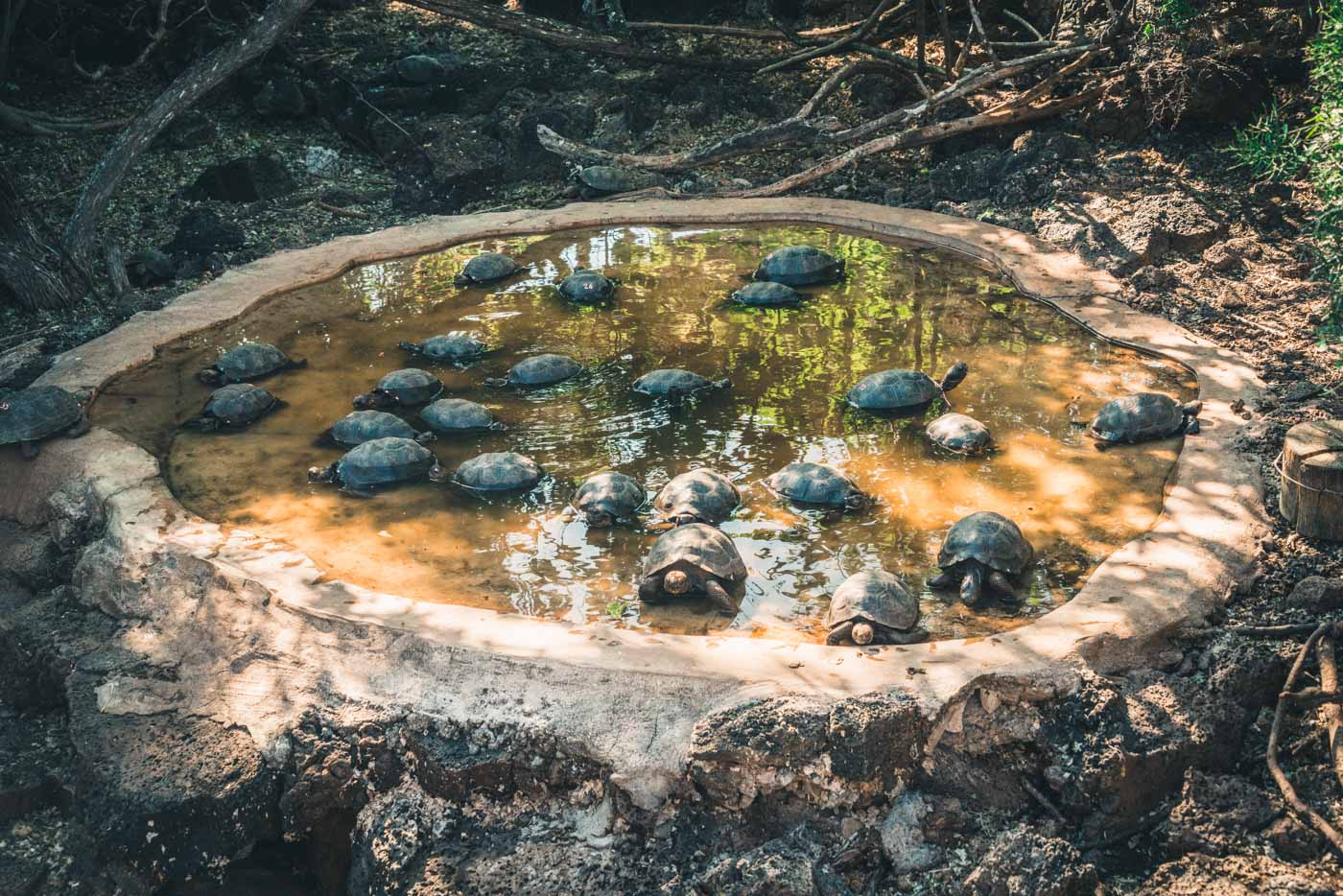
The truth is, Galapagos Islands can be visited any time of the year. The air tempertaure is never too cold or too rainy and the fluctuations in the ocean temperations bring their own pros to any snorkeling or diving enthusiasts. There is wildlife activity on the islands through the year and an opportunity to see the top Galapagos animals no matter when you choose to visit.

